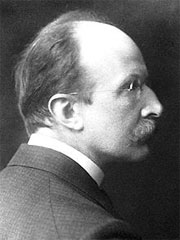 Planck came from a traditional, intellectual family. His paternal great-grandfather and grandfather were both theology professors in Göttingen; his father was a law professor in Kiel and Munich; and his paternal uncle was a judge.
Planck came from a traditional, intellectual family. His paternal great-grandfather and grandfather were both theology professors in Göttingen; his father was a law professor in Kiel and Munich; and his paternal uncle was a judge.
Max Planck’s signature at ten years of age.
Planck was born in Kiel, Holstein, to Johann Julius Wilhelm Planck and his second wife, Emma Patzig. He was baptised with the name of Karl Ernst Ludwig Marx Planck; of his given names, Marx (a now obsolete variant of Markus or maybe simply an error for Max, which is actually short for Maximilian) was indicated as the primary name.[1] However, by the age of ten he signed with the name Max and used this for the rest of his life.[2]
He was the sixth child in the family, though two of his siblings were from his father’s first marriage. Among his earliest memories was the marching of Prussian and Austrian troops into Kiel during the Danish-Prussian war of 1864. In 1867 the family moved to Munich, and Planck enrolled in the Maximilians gymnasium school, where he came under the tutelage of Hermann Müller, a mathematician who took an interest in the youth, and taught him astronomy and mechanics as well as mathematics. It was from Müller that Planck first learned the principle of conservation of energy. Planck graduated early, at age 17.[3] This is how Planck first came in contact with the field of physics.
Planck was gifted when it came to music. He took singing lessons and played piano, organ and cello, and composed songs and operas. However, instead of music he chose to study physics.
Planck as a young man, 1878
The Munich physics professor Philipp von Jolly advised Planck against going into physics, saying, “in this field, almost everything is already discovered, and all that remains is to fill a few holes.” Planck replied that he did not wish to discover new things, only to understand the known fundamentals of the field, and began his studies in 1874 at the University of Munich. Under Jolly’s supervision, Planck performed the only experiments of his scientific career, studying the diffusion of hydrogen through heated platinum, but transferred to theoretical physics.
In 1877 he went to Berlin for a year of study with physicists Hermann von Helmholtz and Gustav Kirchhoff and the mathematician Karl Weierstrass. He wrote that Helmholtz was never quite prepared, spoke slowly, miscalculated endlessly, and bored his listeners, while Kirchhoff spoke in carefully prepared lectures which were dry and monotonous. He soon became close friends with Helmholtz. While there he undertook a program of mostly self-study of Clausius’s writings, which led him to choose heat theory as his field.
In October 1878 Planck passed his qualifying exams and in February 1879 defended his dissertation, Über den zweiten Hauptsatz der mechanischen Wärmetheorie (On the second fundamental theorem of the mechanical theory of heat). He briefly taught mathematics and physics at his former school in Munich.
In June 1880 he presented his habilitation thesis, Gleichgewichtszustände isotroper Körper in verschiedenen Temperaturen (Equilibrium states of isotropic bodies at different temperatures).








Great story! 😛